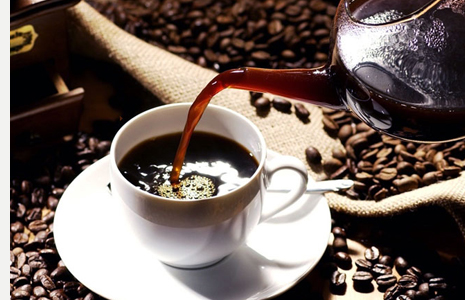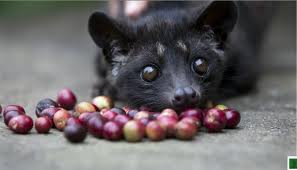Food & Beverage
KOPI LUWAK – THE WORLD’S MOST EXPENSIVE COFFEE

Coffee is arguable the worlds most favourite beverage. It is very popular with people of all ages and especially with those who require an instant boost of energy. Today coffee is available all over the world in many flavours and different quality, but what sets them apart is the price that you pay to enjoy them. However many will be astonished to know that the worlds most expensive coffee comes from the poop of a weasel like creature – the Asian Palm Civet and fetches about hundreds of dollars per pound.
The Kopi Luwak from Indonesia is also known as the Civet Coffee. The coffee cherries are picked and eaten by the palm civet after which they spend about a day or two in its digestive tract. The undigested beans are passed out in the animal droppings that are collected, cleaned and roasted like conventional coffee.
According to the producers or ones who grow the coffee cherries, the quality of the coffee beans is improved in two processes. Firstly the civet chooses the coffee cherries that have the best beans in them. Later the digestive mechanisms improve the flavor of the coffee beans when the fermentation occurs in the digestive tract.
The origin of Kopi Luwak dates back to the 18th century when the Dutch established coffee plantations in the islands of Java and Sumatra. During this time the native farmers or the plantation workers were prohibited from picking the coffee beans for their personal use, but the natives were very curious and wanted to taste the famous coffee.
 For obvious reasons the Kopi Luwak cannot be mass produced, but the increasing demand for the coffee has given way for intensive farming methods in which the civets are caged and force-fed the coffee beans. This way of production has raised several concerns of the horrific treatment of the civets which includes poor diet, small cages, isolation and high mortality rate. This method is also criticized by traditional coffee farmers as it does not allow for the good quality beans to be collected by the civet and they have to consume the seeds picked by the workers. Soon they discovered that a specific species of the musang or luwak consumed the coffee beans and left the undigested seeds in their droppings. The natives collected these seeds, thoroughly cleaned them, roasted and ground them to make their own coffee. Soon the aroma and flavor spread to the plantation owner and soon became their favourite. Even during the colonial times the civet coffee was expensive due to its unusual process and rarity.
For obvious reasons the Kopi Luwak cannot be mass produced, but the increasing demand for the coffee has given way for intensive farming methods in which the civets are caged and force-fed the coffee beans. This way of production has raised several concerns of the horrific treatment of the civets which includes poor diet, small cages, isolation and high mortality rate. This method is also criticized by traditional coffee farmers as it does not allow for the good quality beans to be collected by the civet and they have to consume the seeds picked by the workers. Soon they discovered that a specific species of the musang or luwak consumed the coffee beans and left the undigested seeds in their droppings. The natives collected these seeds, thoroughly cleaned them, roasted and ground them to make their own coffee. Soon the aroma and flavor spread to the plantation owner and soon became their favourite. Even during the colonial times the civet coffee was expensive due to its unusual process and rarity.
The demand has also given rise to fraud and counterfeit coffee that is being sold as Kopi Luwak. According to the Specialty Coffee Association of America, 50 times more Kopi Luwak is sold than it is produced.
The prices of the civet coffee reach about €550 or US$700 per kg and the price paid to the collectors is about US$20 per kg. Authentic Kopi luwak is difficult to find and even more difficult to authenticate. There is no enforcement for the use of the name “Kopi luwak” as it is a combination of Indonesian words kopi – meaning coffee and kuwak – local name for the palm civet. There is also a local coffee brand names as “Luwak” and is sold for less than a dollar per 300 gms and is also sold online as the real thing.
If you are not turned off by the production source of the coffee and are still interested in trying it, then you may have to be careful about where you purchase it.






















































